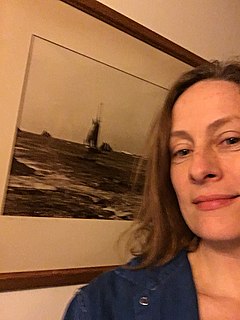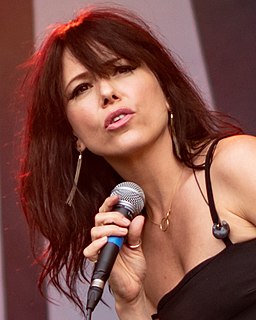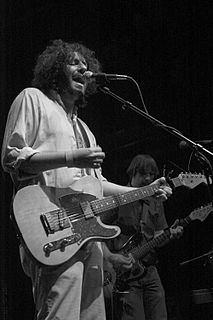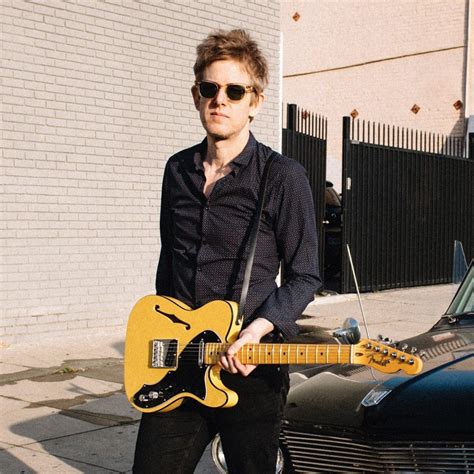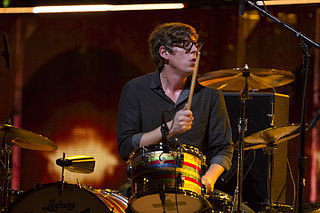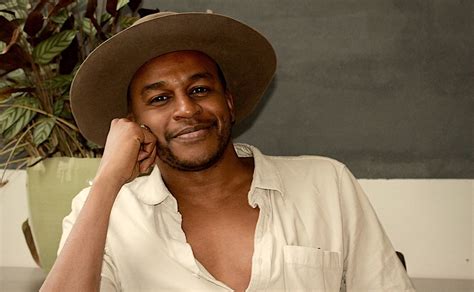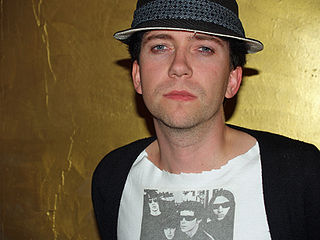A Quote by Sarah Harmer
My friend worked at a record store in Burlington and I really liked R.E.M. and a lot of music, but I didn't go to see much. I was 16, so I wasn't in bars unless I knew the band and could get in.
Related Quotes
One thing that did get me into a lot of different types of music was when I was very young, the local record store went out of business and they were selling off all the vinyl. I remember going in - I was probably 16 or 17 and I'd just gotten a record player as a present. It was like hitting the jackpot: all these records for $3 apiece.
I certainly didn't predict people who spent years actively disliking the band to all of a sudden like the band. That's pretty funny to me, and it makes playing live kind of interesting, 'cos we're doing lots of things that don't really have a lot to do with that record, and even presenting the songs off that record in a way that's a little more muscular and without as much of the sheen, which is what I think part of what people really liked [about Kaputt].
I realized that the actors that I liked and admired all went to drama school and got an agent that way. So I started when I was about 16 in drama school, and then I knew I had to wait until I was 18 so I could go on auditions, and I tried to get into one of the ones that I liked and then go from there.
The idea that somebody out there is that eager to hear my music in advance can only be a good thing. But growing up, I always liked that system where "release day" was a big thing, and for bands I really liked, I'd know that date. It'd be on my calendar, and I'd go to the record store that day. Sitting down and listening to the record for the first time was a real event. I wish it was still that way, but that's not the way the world works any more.
When you go into the whole realm of creating your own music and seeing the project through, it's increasingly difficult because nowadays a lot of people are making music all on their own - the individual instead of the band. And when you have such a solid vision and you spend so much time working on one idea and allowing it to manifest in your mind through a record, and then you have to go and find people to help you see it through live, it gets really overwhelming, to have to project and really clearly state what you're trying to do and how you want them to do it.
I do not want and will not take a royalty on any record I record. I think paying a royalty to a producer or engineer is ethically indefensible. The band write the songs. The band play the music. It's the band's fans who buy the records. The band is responsible for whether it's a great record or a horrible record. Royalties belong to the band. I would like to be paid like a plumber. I do the job and you pay me what it's worth.
Well, at first the band were simply called Horsepower, but a lot of people thought that was something to do with heroin. That really pissed me off, so I decided to put something in front of it to distract them. “I got '16' from a traditional American folk song, where a man is singing about his dead wife and 16 black horses are pulling her casket up to the cemetery. I liked the image of 16 working horses.
I don't really care about labels that much. I wouldn't really call our music retro. There are influences of things from the past, which there is in everything. I think we're quite a modern band, actually. We don't record with old equipment. We use computers and programmed drums. We don't use any guitar amplifiers. We're very much a modern band in the sense that we love computers and what they can do to music. I guess we're just good at a different sound.
I spent most of my 20s playing music. I was in a band and we worked really hard and did not get very far. I was really close to being this guy who used to be in this band who is still playing and trying to get some recordings together, but I got really lucky. That's never lost in me, that I went through Saturday Night Live.
I think I'm just trying to show a more mature side of the band and I think we've really come into the sound of our band. With every album we've grown, but I think this is just a really good picture of where we are right now and how we feel our music represents us. Under the thumb of other record companies we haven't had as much creative control and I think with this record we really did our own thing.
